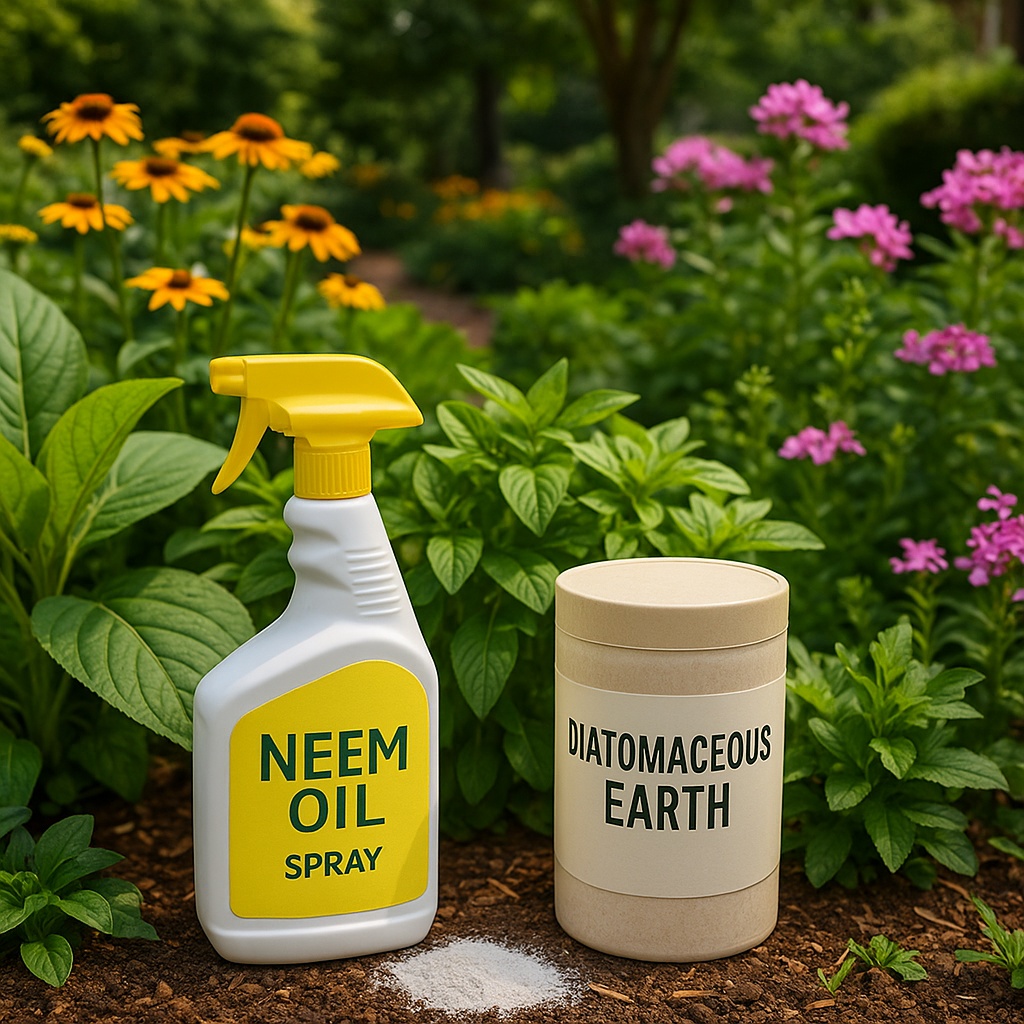
Why Natural Pest Control Matters in the South
Atlanta’s warm, humid springs and long growing seasons are perfect for lush gardens—and unfortunately, also for many garden pests. While chemical pesticides offer a quick fix, they can disrupt the balance of your yard’s ecosystem, harm pollinators, and leave behind residues on your favorite homegrown produce. That’s why natural pest control is an increasingly popular choice among Atlanta gardeners who want both beautiful results and peace of mind.
Common Pests in Atlanta’s Southern Gardens
- Aphids
- Japanese beetles
- Caterpillars (including tomato hornworms and cabbage loopers)
- Squash bugs
- Slugs and snails
- Spider mites
- Flea beetles
Spotting these pests early means you can use simple, non-toxic solutions to keep populations in check.
Integrated Pest Management (IPM): The Natural Approach
Integrated Pest Management combines prevention, observation, and non-chemical intervention to manage pests effectively. By encouraging natural balances and acting early, you can avoid major infestations without harming pollinators or beneficial insects.
Natural Pest Control Methods That Work
1. Physical Barriers & Traps
- Row covers protect young crops from flea beetles and caterpillars.
- Hand-picking is highly effective for large pests like Japanese beetles and hornworms.
- Beer traps are a classic for slugs and snails—just sink a shallow container in the soil and fill with beer.
2. Encourage Beneficial Insects
Ladybugs, green lacewings, and parasitic wasps are nature’s best pest managers. Plant pollen-rich flowers like marigolds, alyssum, and dill to attract them. Avoid broad-spectrum pesticides, as these will harm the very allies you want to encourage.
3. Organic Sprays & Dusts
- Neem Oil: A go-to for aphids, mites, and whiteflies. Spray in the evening and never on blooms where pollinators land.
- Insecticidal Soap: Safe for most plants and breaks down quickly. Spray directly on soft-bodied pests.
- Diatomaceous Earth: A fine powder made from fossilized algae. Dust on and around plant bases to deter crawling insects. Use food-grade only.
- Bacillus thuringiensis (Bt): A natural bacteria that targets caterpillars without harming birds or bees.
4. Cultural Controls
- Rotate crops to prevent soil-borne pest buildup.
- Remove plant debris at season’s end to eliminate overwintering sites.
- Mulch to prevent weeds (which can host pests) and maintain soil moisture.
- Encourage healthy soil with compost—strong plants withstand pests better!
Homemade Remedies for Garden Pests
- Garlic-pepper spray: Blend a bulb of garlic, a hot pepper, and a quart of water. Let sit overnight, strain, and dilute to a gallon for a natural spray against aphids and beetles.
- Soap spray: Mix 1 tablespoon mild liquid soap with 1 quart water. Spray on soft-bodied pests (not in direct sunlight).
- Coffee grounds: Sprinkle used coffee grounds around the base of plants to repel slugs and ants.
When to Take Action
Check your garden regularly—early mornings are best. If you see pest clusters or damage, start with hand removal, then move to sprays or traps if needed. Most natural solutions require repeat applications for best results.
Natural Pest Control Tips for Atlanta Homeowners
- Water early in the day to reduce humidity overnight (which attracts fungal diseases and slugs).
- Keep plants well-spaced for good airflow.
- Encourage birds by adding feeders and birdbaths—many birds love to snack on garden pests!
Resources for Further Reading
Internal Resources
With a little knowledge and the right natural strategies, Atlanta gardeners can enjoy productive, beautiful gardens—without harsh chemicals!

